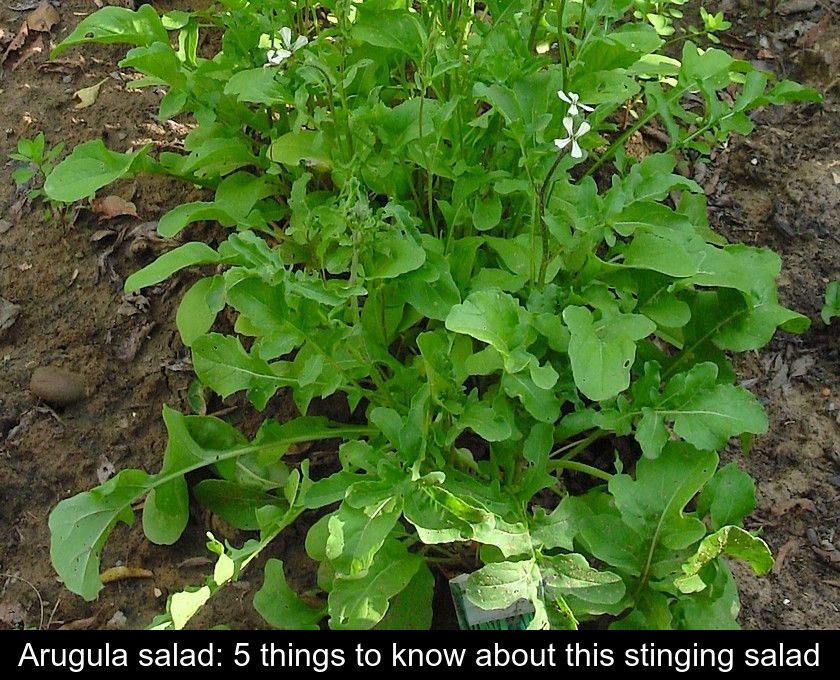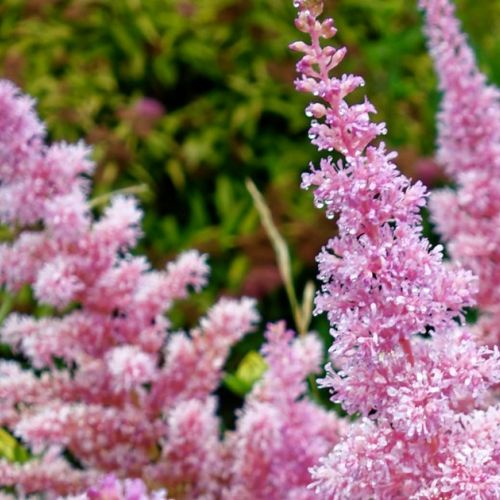Arugula Salad: 5 Things To Know About This Stinging Salad
With its peppery taste, arugula salad is one of the essential components of mesclun. It's easy to recognize by its tangy taste and crunchy texture. But are you sure you know everything about this funny salad? Here are 5 things to know about this easy-to-grow vegetable.
1- It has different names
This salad recognizable by its cut leaves and peppery flavor has the botanical name Eruca sativa. The Latin word eruca gave ruca in Low Latin, then ruchetta in Old Italian.
Although it is usually referred to as arugula on market stalls and in restaurants, in some parts of France it has slightly different names.
It is called rouquette in Languedoc and Roussillon and riquette in the Nice area. The term 'riquette' is sometimes reserved for the wild form of this salad with smaller, tastier leaves.
To note: in botany, a distinction is made between the cultivated species (Eruca sativa) and wild arugula or Diplotaxis erucoides which grows spontaneously in the northern Mediterranean basin from Spain to Italy. Although they are two different plants, they share the common features of belonging to the brassica family and having cut leaves known as pennatilobed.
2- It owes its pungent taste to sulfur compounds
If you're wondering why arugula stings, know that this salad owes its characteristic peppery taste to the presence of sulfur compounds in its leaves.
It shares this characteristic with watercress and mustard, which are two other plants in the Brassicaceae family.
This spicy flavor makes it valuable to cooks. In the kitchen, the young leaves are generally served in salads, alone or as mesclun (i.e. mixed with lettuce, batavia, oak leaf or chicory). Since it is quite tasty, it only needs to be lightly seasoned with salt, lemon juice and a drizzle of olive oil.
As for the larger, less tender leaves, they can be used to make arugula pesto or incorporated into a velouté or stew.
3- Sow directly in place from March to August
If you want to start growing ro(u)quette in your vegetable garden, you should know that this salad can be multiplied by sowing.
Simply sow it in place in fresh, fertile soil that you have previously tilled and enriched. This plant does not like to be sown in a bucket and then transplanted.
Sow the seeds in rows, about every 3 cm, spacing the rows 20 to 30 cm apart. You will then have to thin out the seedlings to 15 cm.
For those wondering when to sow arugula salad, know that sowing can be done from March through August.
Provide it with a sunny exposure, unless you live in a very hot area. In that case, it will prefer a location in partial shade. Once in place, this lettuce reseeds easily, so much so that it can become invasive.
4- It needs regular watering
Arugula is a fairly hardy plant. However, if you want to be able to harvest its leaves from April to August, you need to water it regularly. Keep in mind that any lack of water will cause the plant to go to seed, which of course is not the goal for leafy greens like lettuce and spinach.
Other than regular watering, maintenance is limited to hoeing the soil, removing weeds and removing flowering stems to prevent the plant from reseeding.
5- It is believed to have aphrodisiac properties
Thanks to the sulfur compounds that give it its pungent flavor, arugula salad also has aperitive, digestive and diuretic medicinal benefits.
Since ancient times, it has been credited with antiscorbutic and especially aphrodisiac properties! In the Middle Ages, this plant was considered a powerful natural aphrodisiac, so much so that it was banned from monastic gardens...
Even if this property is impossible to confirm, do not hesitate to start growing this salad! Its particular flavor and ease of maintenance alone justify that you reserve a corner of your garden for it...







